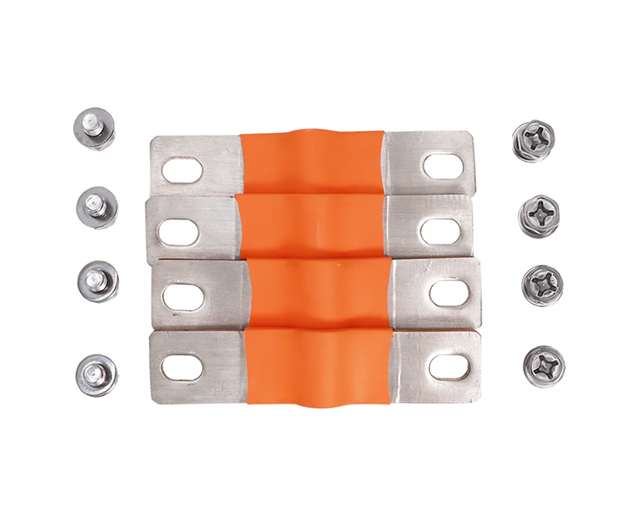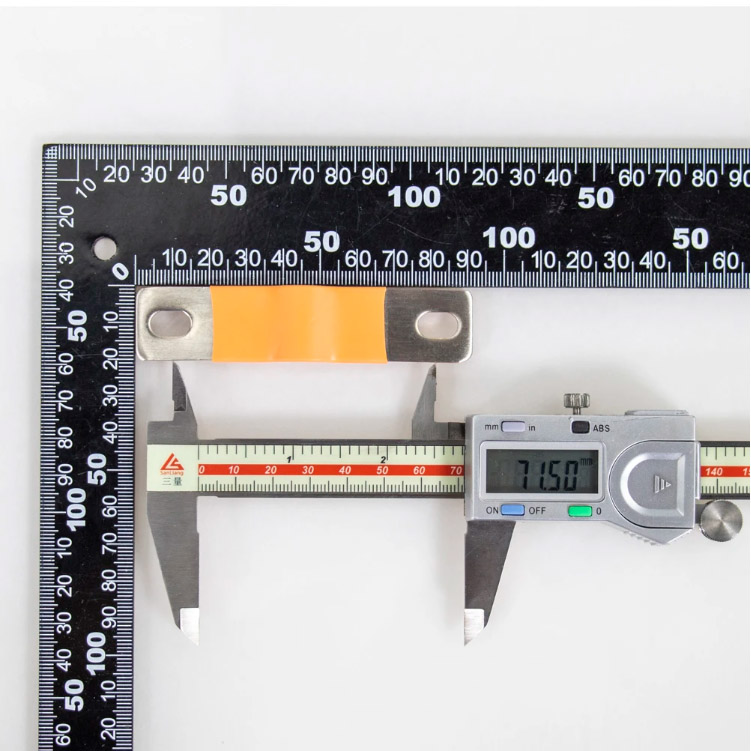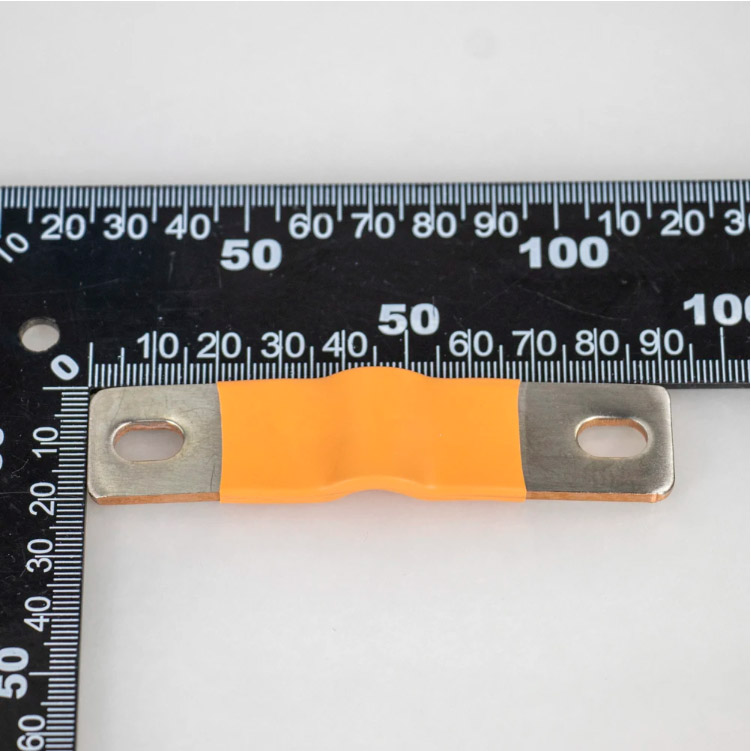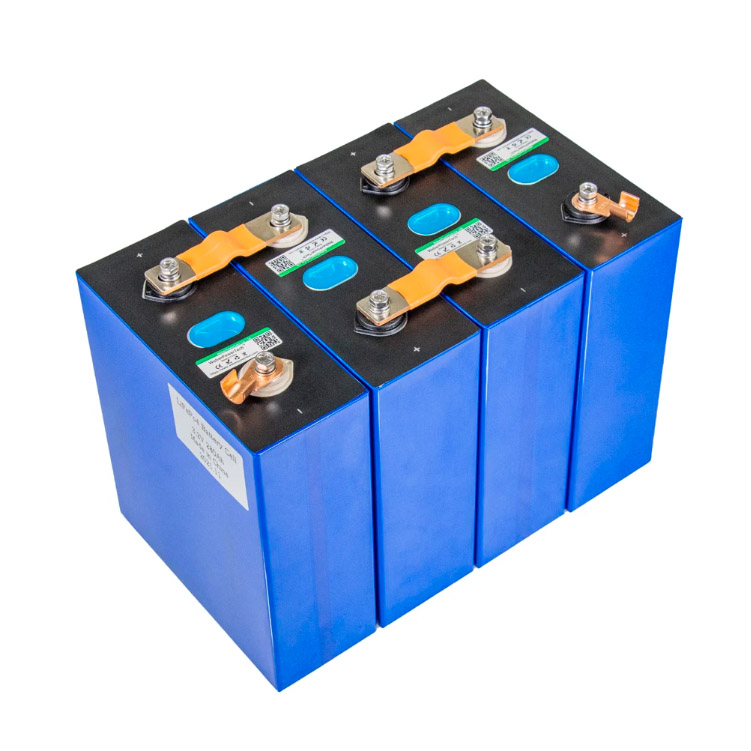

A 48V battery bus bar is a critical component in modern battery systems, designed to provide a stable and efficient electrical connection between battery cells, modules, or packs. It ensures optimal current flow while reducing energy loss and heat generation. Busbars are widely used in automotive systems, electric vehicles, solar battery banks, and energy storage solutions. Whether you are installing a 12V battery bus bar for smaller systems or a high-power EV battery busbar, our products guarantee performance, safety, and durability.

Our battery bus bars are produced using precise fabrication techniques to ensure high conductivity and mechanical strength:
Material Selection: High-purity copper or aluminum sheets are chosen for excellent electrical conductivity.
Cutting and Shaping: Using CNC punching, laser cutting, or stamping to achieve precise dimensions.
Surface Treatment: Options include tin plating, nickel plating, or anodizing to prevent corrosion and ensure reliable contact.
Assembly & Inspection: Each automotive battery bus bar, car battery bus bar, or solar battery bus bar undergoes strict quality inspection for flatness, thickness, and current-carrying capability.
The principle behind busbars is simple: a solid conductor distributes electric current evenly across battery terminals, minimizing resistance and heat.
Compared to standard busbars in the market, our busbars for batteries stand out due to:
Superior Conductivity: High-quality copper and aluminum reduce voltage drops, ensuring stable performance.
Customizable Design: Thickness, width, and shape can be tailored for specific battery cable busbar applications.
Lightweight Yet Strong: Aluminum versions reduce system weight, ideal for EVs and automotive applications.
Corrosion Resistance: Surface treatments prevent oxidation, extending service life.
Versatile Applications: Compatible with busbar for solar battery bank, 12V battery bus bar, and high-power EV battery busbar systems.

Copper Battery Bus Bar: Excellent electrical conductivity and durability, suitable for high-current automotive or EV applications.
Aluminum Battery Bus Bar: Lightweight and cost-effective, ideal for solar battery systems and 48V energy storage solutions.
| Parameter | Typical Value / Range |
|---|---|
| Material | Aluminum / Copper |
| Voltage Rating | 12V / 48V |
| Current Capacity | 50A – 200A (customizable) |
| Thickness | 3mm – 10mm |
| Width | 10mm – 30mm |
| Surface Treatment | Tin Plating / Nickel Plating / Anodizing |
| Length | Customizable |

Automotive & EV Systems: Automotive battery bus bar and EV battery busbar for cars, buses, and electric vehicles.
Solar Energy Systems: Solar battery bus bar and busbar for solar battery bank for residential and commercial energy storage.
Energy Storage & UPS Systems: Connecting battery packs efficiently for industrial or household applications.
12V Systems: Small-scale 12V battery bus bar for low-voltage applications.
Ensure proper torque when connecting to battery cable busbar to prevent deformation.
Avoid sharp bends; maintain smooth bends to reduce stress and potential fractures.
Inspect surface for oxidation or loose connections periodically.
Keep the busbar clean and free from conductive dust to maintain performance.
Compared to other suppliers, we provide:
High-Quality Materials: Only premium aluminum or copper for consistent conductivity.
Custom Design Capability: Tailored solutions for automotive battery bus bar, solar battery bus bar, and EV battery busbar.
Strict Quality Control: Each battery bus bar undergoes inspection to meet international standards.
Global Supply & B2B Support: Fast delivery and professional after-sales service.
Our busbars are optimized for long-term performance, safety, and efficiency, ensuring your systems operate reliably under demanding conditions.
Q1: Can I use the same busbar for 12V and 48V battery systems?
A: Yes, our busbars are designed for both low-voltage (12V battery bus bar) and higher voltage systems (48V battery bus bar), with thickness and width adjusted according to current requirements.
Q2: What is the difference between aluminum and copper busbars?
A: Copper offers higher conductivity and durability, suitable for high-current EV or automotive applications. Aluminum is lighter and cost-effective, ideal for solar and 48V energy storage systems.
Q3: Can you provide custom shapes and sizes?
A: Absolutely. We can customize busbars for batteries according to your design requirements, including thickness, width, and surface treatment.
Q4: How do I maintain my battery busbar?
A: Regular inspection for oxidation, tightness of connections, and cleaning dust or debris ensures optimal performance.
Q5: Are your busbars suitable for solar battery banks?
A: Yes, our busbar for solar battery bank solutions are specifically designed for residential and commercial solar systems.